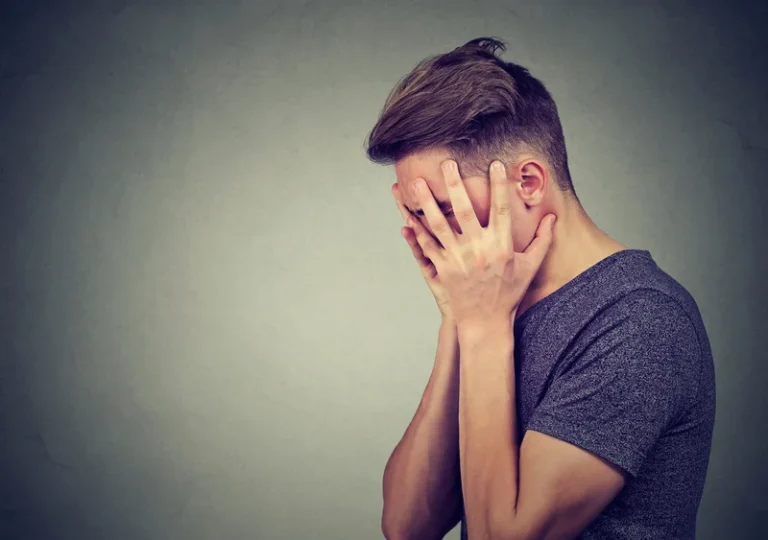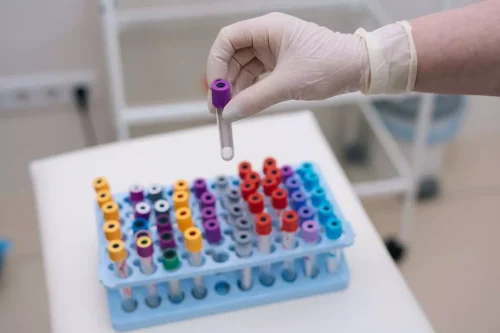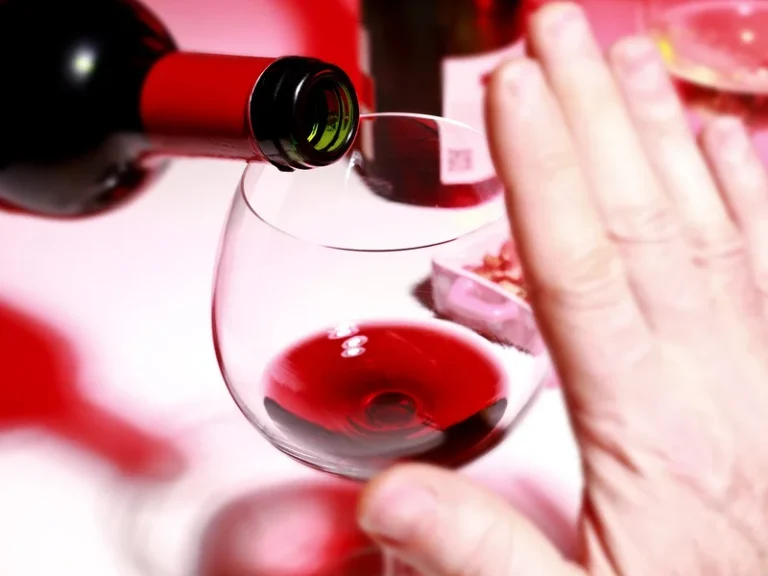
Liver disease makes you susceptible to pain or discomfort after drinking alcohol. This is especially likely if your liver is impaired due to alcoholism. The disease can also affect blood flow to the kidneys and cause them to be less effective in filtering blood. More than two drinks a day can increase your chance of having high blood pressure.
- People who drink too much are also more likely to have high blood pressure.
- She has nearly a decade of experience with kidney disease patients in all stages - from stage 1 through kidney transplant.
- This makes it difficult for us to obtain reliable evidence to support our conclusions.
- It is important to see a doctor for any and all kidney pain, whether it is related to alcohol consumption or not.
- Moderate alcohol consumption should not cause kidney pain, but various factors may lead to kidney pain after a high intake.
- Furthermore, moderate alcohol consumption appears to be harmful in patients with CKD because it increases the incidence of cerebral hemorrhages [14,89].
Alcohol and kidney disease

People with alcohol-induced CKD will require treatment for AUD as well as CKD. On the other hand, there is evidence showing alcohol may lower the risk of CKD. Wine and beer have been shown to be the most beneficial when it comes to reducing kidney stone risk. In some cases, a renal vitamin or multivitamin may be recommended to you by your dietitian.
Potential Mechanisms of Alcoholic Kidney Injury: Lessons From Experimental Studies

This pain may be felt as a sudden, sharp, stabbing pain or more of a dull ache. It may be mild or severe and can be felt on one or both sides of the body. Kidneys are essential to keeping the body healthy and free of harmful substances such as alcohol. The kidneys also maintain the proper balance of fluid and electrolytes.
Join KidneyNation and help create a world without kidney disease.
Another potential cause of hypophosphatemia in alcoholic patients is hyperventilation, which can occur during alcohol withdrawal. Prolonged rapid, shallow breathing results in excessive loss of carbon dioxide and decreased blood acidity (i.e., alkalosis), which in turn activates an enzyme that enhances glucose breakdown. In glucose breakdown, phosphate becomes incorporated into various metabolic compounds, ultimately lowering blood levels of phosphate. As the rate of glucose breakdown increases, profound hypophosphatemia potentially can result. Low blood levels of phosphate commonly occur acutely in hospitalized alcoholic patients, appearing in more than one-half of severe alcoholism cases. The kidney tubules play an important role in keeping the body’s water and electrolyte levels in equilibrium.
- People older than age 50 overcome suppression of ADH more quickly than their younger counterparts do, despite reaching similar serum electrolyte concentrations after alcohol consumption.
- By promoting liver disease, chronic drinking has further detrimental effects on the kidneys, including impaired sodium and fluid handling and even acute kidney failure.
- The treatment for alcohol-induced kidney problems depends largely on the type of kidney disease a person has sustained.
- Free radicals (also called reactive oxygen species [ROS]) are one of the by-products of alcohol metabolism and are known to cause cellular damage, unless the body can use antioxidants to clean them up.
- In addition, hypokalemia, hyponatremia, hypomagnesemia, hypocalcemia, hypophosphatemia, and metabolic acidosis mixed with volume-contracted metabolic alkalosis are common in long-term alcohol consumption.
Chronic kidney disease (CKD) stages
Sanoff et al. found that consumption of a homemade alcohol, prepared by an unregulated process in Nicaragua, may be related to kidney injury among the local residents, which may related to pesticides or heavy metals contamination [114]. To keep the kidneys functioning optimally and to maintain functional stability (i.e., homeostasis) how does alcohol affect the kidneys in the body, a variety of regulatory mechanisms exert their influence. Alcohol can perturb these controls, however, to a degree that varies with the amount of alcohol consumed and the particular mechanism’s sensitivity. Several mechanisms may contribute to abnormally low phosphate levels (i.e., hypophosphatemia) (see box).
The good news is that you can prevent this by not drinking too much alcohol. Drinking too much even on just one occasion can have negative effects on overall health. Alcohol digestion produces toxic compounds that damage many essential organs including the kidneys. Both short- and long-term drinking can cause many kidney-related problems like structural changes, dehydration, high blood pressure, along with imbalances of fluids, electrolytes, and acid-base balance.
Alcoholic Cardiomyopathy: Another Potential Confounder
- When it comes to kidney stones and alcohol there is some conflicting information.
- Your kidneys are complex, performing several important jobs to keep you healthy.
- Changes in hydration and electrolytes from alcohol intake can increase the risk for a UTI.
- Binge drinking, defined as having four or more drinks at a time, may result in a serious condition known as acute kidney injury.
- When you drink heavily, your kidneys have to work harder to filter out the alcohol.
Moderate drinking should not cause kidney pain, but binge drinking or frequent drinking may cause kidney problems. Binge drinking, defined as having four or more drinks at a time, may result in a serious condition known as acute kidney injury. This occurs when the toxins from alcohol build up in your blood quickly and your kidneys are not able to maintain the right fluid balance. Alcohol, whether in moderation or excess, exacerbates kidney problems to the point of actual kidney disease. Although light-to-moderate alcohol consumption may not pose a risk to patients with CKD, the patients’ condition needs to be considered. Many patients with CKD often have other comorbidities, such as diabetes, coronary heart disease, stroke, and other serious chronic diseases.
Medications to Avoid or Adjust If You Have Chronic Kidney Disease
Kidneys that have been overworked due to excess alcohol consumption don’t function properly. This makes them less able to filter blood and maintain the correct water balance in the body. The hormones that control kidney function can also be adversely affected. The NKF explains that chronic drinking can cause liver disease, which impairs the rate of blood flow to the kidneys. In terms of alcohol’s effects on the kidneys, the National Kidney Foundation (NKF) states that drinking too much alcohol can harm kidney function and worsen existing kidney disease.
As for the kidney damage caused by alcohol, some studies discovered that the patients’ renal function recovered after abstinence [1]. However, others also found that abstinence cannot completely repair the kidney injury [26]. Unfortunately, existing clinical studies have not analyzed why some patients with CKD give up drinking and the influence of giving up drinking on the prognosis of these patients. NO is a free gaseous signal molecule produced by the NOS family, including neuronal NO synthase (nNOS), inducible NO synthase (iNOS), and endothelial NO synthase (eNOS), and it plays an important role in hemodynamics regulation. In general, NO is generated by mesangial cells and renal tubular epithelial cells, and it plays an important role in the regulation of glomerular and medullar hemodynamics and renin release. Although different studies have shown opposite results for the effects of NO and NOS activity with alcohol consumption [19,39,46,47], they came to a similar conclusion that NO and NOS play important roles in glomerular endothelial cell injury.

You may experience flank pain and pain or difficulty during urination. A kidney infection is a type of urinary tract infection (UTI) that starts in the urethra or bladder and moves to one or both kidneys. The symptoms and severity of a UTI may get worse after drinking alcohol. Drinking alcohol if you already have kidney stones may cause them to move quickly. For these reasons, it’s natural that when your kidneys have to work extra hard to rid the body of excess alcohol, you may experience pain. Frequent urination that goes along with this flushing of the system can lead to dehydration.
Take a look at this: Bactrim


